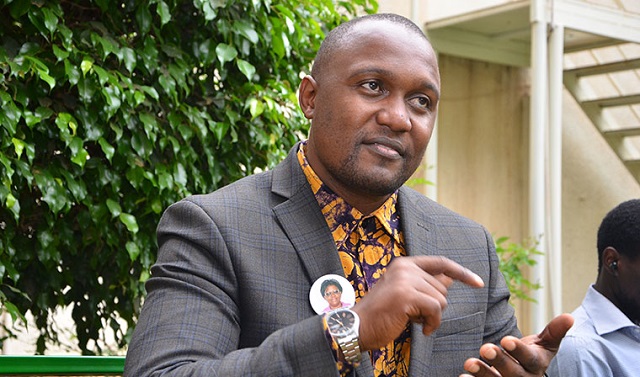
But another member shot back: “Why don’t I value local doctors yet I can afford to pay for them? I spent a significant part of my youth in medical facilities around the country because my mother was always posted in hard to reach areas that were unpopular. In some of these places I found Italian volunteers who worked to serve the community diligently despite the hardship. They never diverted a single pill. It was easier to listen to the pleas of such medical workers than the current crop who can neither account for their time and supplies entrusted to them”.
Dr. Ekwaro Obuku, a health researcher and president of the Uganda Medical Association says importing Cubans was a rushed political decision that does not contribute to transforming the health sector.
He says the Cubans will also fail if they work under the same conditions of not having medical supplies.
Obuku should be aware that the Cuban Health System has similar problems as Uganda. The health workers are poorly paid, infrastructure is in a poor state of repair, equipment is mostly outdated, and essential drugs are frequently lacking.
Unlike Uganda, however, the health workers are not lamenting or striking. Instead, they go about happily investing in accessible primary and family healthcare, and focus on providing access to education, housing, and nutrition—key non-medical or social determinants of health.
As a result, the country is a world leader in terms of doctor to patient ratios. While Uganda grapples with 1: 24000 far below the World Health Organization recommendation of 1:1000, the doctor to patient ratio in Cuba is 1:155.
The country is not only good here. They have managed to cut infant mortality to 4.2 per 1000 births and while Uganda largely focuses on treatment, the Cubans have adopted a preventive approach to medicine and offering the simplest check-up to the most complex surgery, free of charge and at the same time offering quality.
This is the same approach that Uganda wants to adopt, at least according to Opendi. She says Cuba has introduced the approach of offering quality with few resources to many other countries. Kenya and Uganda seem to be among their newest clients.
Justinian Muhwezi Kateera, City lawyer and former Executive Director of the Institute of Public Policy Research IPPR , a think-tank that brought the legal petition that prevented a proposal to export doctors to Trinidad and Tobago told the Independent that Cuban doctors can play an important role in supporting health systems in Uganda as it has done in across Latin America, other countries in Africa and Europe.
“The invitation of Cuban Doctors is a net medical brain-gain for us. There will be a positive impact on patient care and a unique opportunity for skills transfer,” he says.
For Kateera, while the likes of Obuku have a valid appeal for equitable investment in infrastructure, drugs provision and human resource capacity, it should not be an argument used against medical brain-gain.
“Even if we increased per capita health spending by say 1000%, and recruited all medical graduates, we would still face constraints because our Doctor: Patient ratio is still too low,”Kateera says, “That’s why South Africa with 10 times our spending still faces shortages and seeks to recruit Ugandan doctors. So does UK or U.S. which still recruit African and Cuban doctors”.
Figures from the Uganda Medical and Dental Practitioners Council (UMDPC) show a total of 569 foreign doctors are already working in different hospitals across the country with many working in highly specialized fields like heart and brain surgery. 33% of these expatriate doctors hail from the USA, 27% from the UK, 17% from Canada, 13% from Italy and 10% from India.
According to Dr. Katumba Sentongo the Registrar at UMDPC, when expatriate doctors arrive they are screened for knowledge of the area of specialty and clinical skill and then are temporarily registered to practice here.
 The Independent Uganda: You get the Truth we Pay the Price
The Independent Uganda: You get the Truth we Pay the Price



